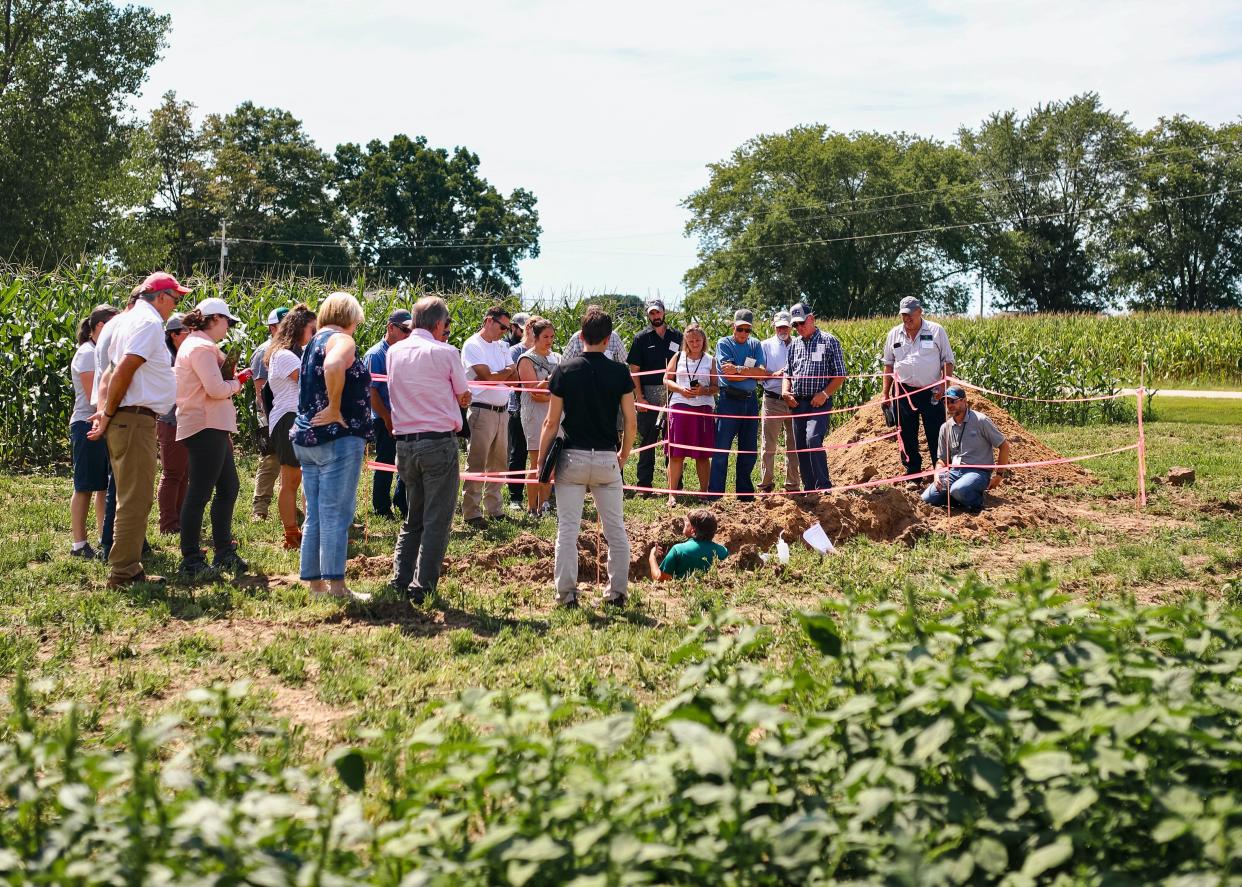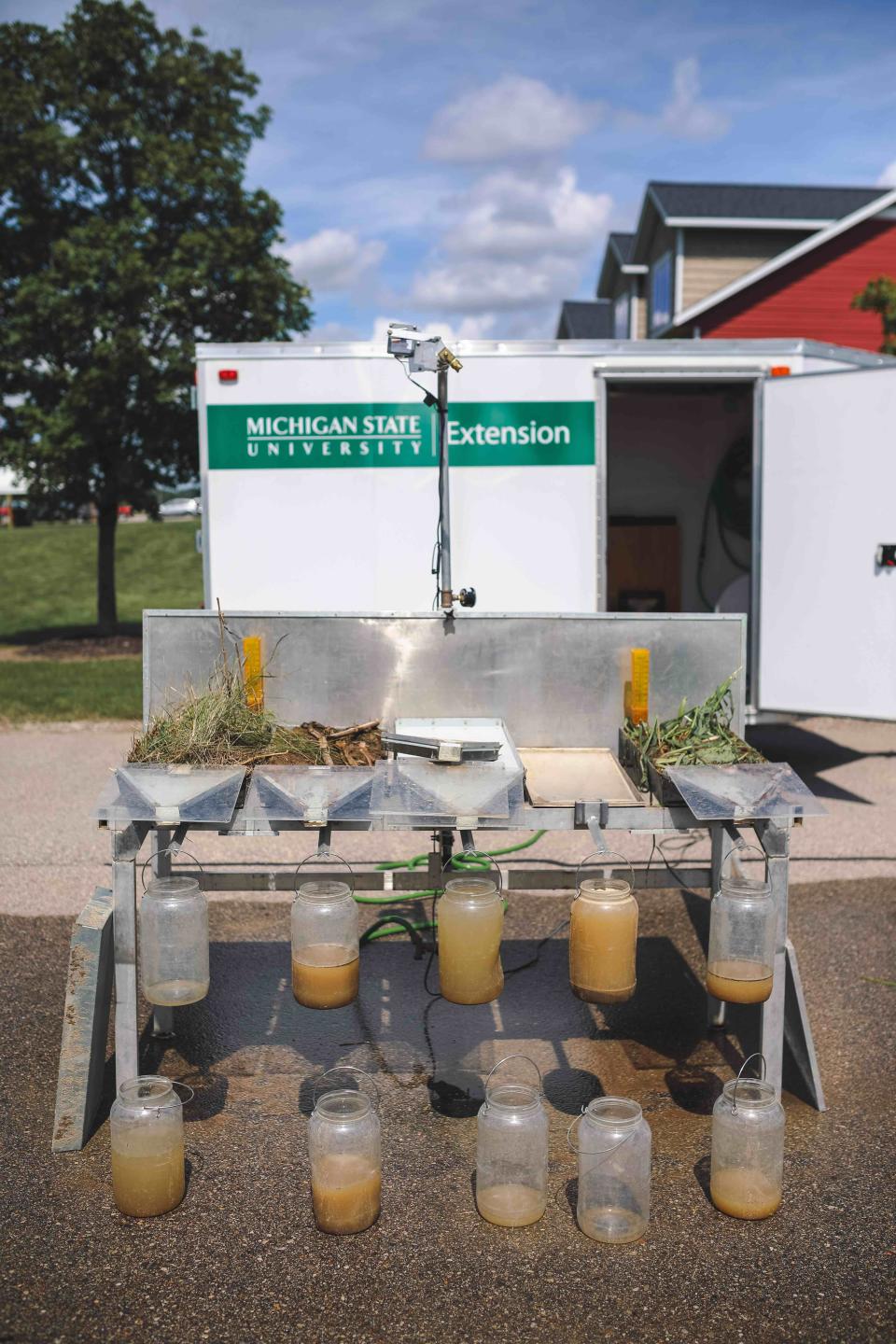MiSustainable Holland: Farm field day will promote and inspire sustainable practices

Area farmers will have a chance to learn first-hand about the benefits and implementation of sustainable agricultural practices at the third annual Cultivating Resilience Farm Field Day coming up this week.
Farmers of all experience levels are invited to come out and learn about the sustainable agricultural practices that promote water conservation and soil health and see for themselves the benefits these sustainable practices have on the land and water.
The free event will be 8 a.m. to 2:45 p.m. Thursday, Aug. 18, at Shady Side Farm, 13275 Blair St., Holland. Learn more or register at the Ottawa Conservation District website, ottawacd.org.

Attending this field day will also provide the knowledge farmers need to apply these sustainable practices to their own operations. A few of the practices that farmer Mike Bronkema implements at Shady Side Farm that will be discussed include composting, no-till and rotational grazing.
Composting is the process of breaking down organic matter such as food scraps and yard waste into a natural fertilizer. These decomposed materials enrich the soil with necessary nutrients and increase the soil’s water retention. Soil capable of holding increased amounts of water reduces dependence on irrigation and decreases runoff from agricultural fields.
No-till farming is the practice of leaving the soil as undisturbed as possible. This practice ensures that nutrients imperative to soil health, like nitrogen and phosphorus, stay in the soil and thus reduces the need for chemical fertilizers. One component of no-till farming is planting cover crops. Planting an annual cover crop in the fall, like rye, protects the soil during the winter months and allows for crops to be planted directly into the organic material in the spring without tilling.

Farms that practice rotational grazing move their animals to different portions of a pasture at certain times. This allows plants to develop deeper roots in the areas where the animals are not grazing, which increases the permeability of the soil and reduces runoff and erosion.
In combination, all of these sustainable practices lead to improved soil health and reduce water consumption, ultimately creating a more resilient farm.
In addition to demonstrations of these practices, the farm field day will feature keynote speakers discussing holistic farm management and what the future of water in Ottawa County might look like. A panel will discuss the protection of water quality in county drains. And farmers will have opportunities to connect and network with other local farmers.
As a farmer, learning about and implementing sustainable agricultural practices is crucial to protecting our community’s land and water for decades to come. As a consumer, connecting with our farmers and asking them about their sustainable practices is imperative to making informed decisions about the food we purchase. Connecting and working together as a community, we can cultivate resilience.
Sydney Quillian is a watershed intern with the ODC Network, studying communication studies and environmental and sustainability Studies at Grand Valley State University.
About this series
The MiSustainable Holland column is a collection of community voices sharing updates about local sustainability initiatives.
This Week’s Sustainability Framework Theme: Environmental Awareness/Action: Environmental education and integrating environmental practices into our planning will change negative outcomes of the past and improve our future.
This article originally appeared on The Holland Sentinel: Farm field day will promote and inspire sustainable practices

